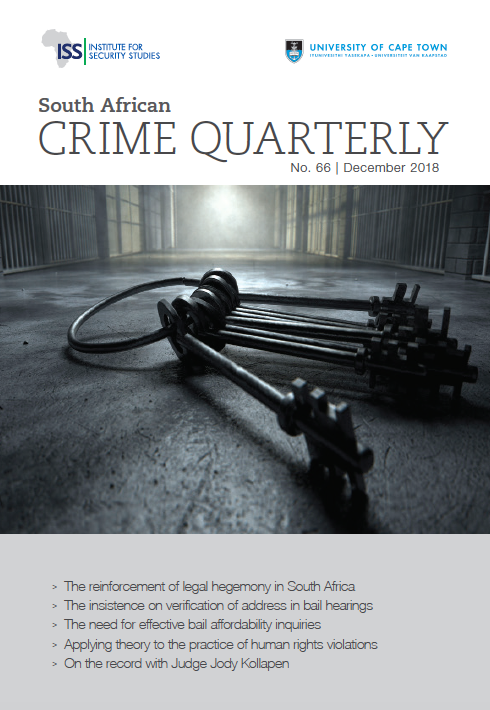Possibly unconstitutional? The insistence on verification of addresses in bail hearings
DOI:
https://doi.org/10.17159/2413-3108/2018/i66a5710Abstract
Arrestees have the right to apply for bail and to be released pending their trial, where circumstances require it. There is a practice of requiring people to verify their addresses prior to bail being granted, and this is implemented in various ways by different magistrates’ courts; from a magistrate refusing to hear a bail application until there is a verified address, to a magistrate hearing the application but holding the decision over until a verifiable address is supplied. This practice is widespread, and unfairly prejudices the homeless and poor, whose addresses are difficult to verify. It also means that their pre-trial incarceration might be lengthier than their sentences. This article will argue that this practice should be subject to the interests of justice criteria, and that its current form does not meet this standard. We will also investigate what this practice might look like if carried out in compliance with the interests of justice criteria. Lastly, this article will argue that this practice in its current form fails to meet rule of law standards. These arguments will be made in the context of the right to equality, and discrimination against those living in poverty. It will be concluded that, in its current form, the practice is unconstitutional.
Downloads
Downloads
Published
Issue
Section
License
Copyright (c) 2018 Author and Institute for Security Studies

This work is licensed under a Creative Commons Attribution 4.0 International License.
SACQ is licenced under a creative commons licence (CC BY) that allows others to distribute, remix, tweak, and build upon your work, even commercially, as long a they give appropriate credit, provide a link to the license, and indicate if changes were made. They may do so in any reasonable manner, but not in any way that suggests the licensor endorses you or your use.
Copyright for articles published is vested equally between the author/s, the Institute for Security Studies and the Centre of Criminology (UCT).




.png)